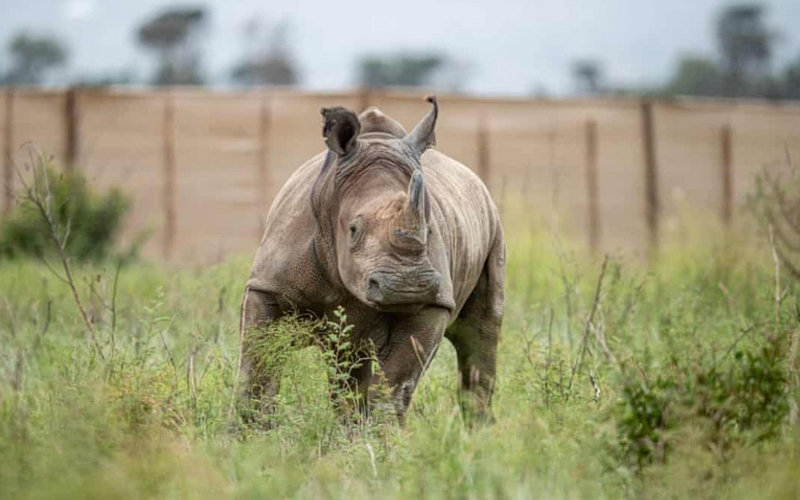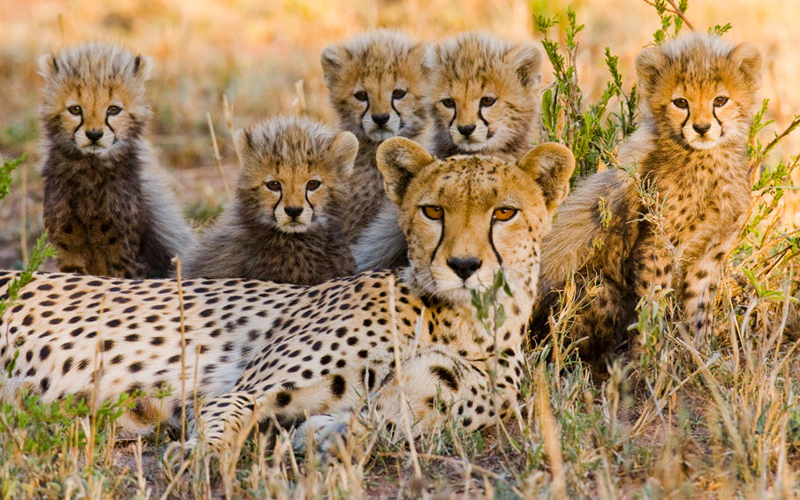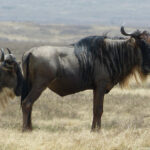Tanzania Africa Conservation Summit 2025 Tourism
The upcoming 2025 Conservation Summit promises to be a pivotal moment for Africa as it gathers environmental leaders, policy-makers, and stakeholders from around the world to discuss and address urgent conservation challenges. As one of Africa’s most biodiverse countries, Tanzania plays a significant role in these efforts, not only through its vast natural resources but also through the powerful intersection of conservation and tourism. In this article, we will explore Tanzania’s key role in the 2025 summit from a tourism perspective and examine how its tourism industry supports the conservation initiatives that make it a beacon of sustainable practices in Africa.
Tanzania’s Rich Biodiversity
Tanzania is a country of stunning natural beauty and ecological diversity. From the towering peaks of Mount Kilimanjaro to the endless plains of the Serengeti, Tanzania is home to a wide variety of habitats that support a remarkable range of species. The country’s rich biodiversity includes iconic animals such as elephants, lions, giraffes, and rhinoceroses, as well as unique bird species and rare plant life.
Tanzania’s national parks, like Serengeti and Ngorongoro, are not only world-renowned travel destinations but also critical conservation zones that protect these species. These areas serve as sanctuaries where endangered species can thrive, and they are vital in maintaining the ecological balance of the region. Tanzania’s role as a guardian of such natural wealth is central to the success of the continent’s conservation strategies, making its participation in the 2025 Summit crucial.
Tanzania’s Tourism Industry and Conservation
Tourism is one of the most powerful tools in Tanzania’s conservation efforts. The country’s tourism industry is largely driven by its natural beauty, particularly its national parks, game reserves, and wildlife safaris. Every year, millions of tourists visit Tanzania to experience its extraordinary landscapes and wildlife, and a significant portion of the revenue generated from tourism is reinvested into conservation programs.
Tourism in Tanzania creates a symbiotic relationship between preserving the environment and boosting the local economy. The funds raised from park entry fees, eco-tourism activities, and safaris are directed towards maintaining the parks, protecting wildlife, and supporting local communities. This creates a sustainable model where tourism and conservation go hand in hand, making Tanzania a global example for integrating both priorities.
Key National Parks and Conservation Areas in Tanzania
Tanzania boasts several key national parks and conservation areas that are central to its role in Africa’s conservation landscape:
-
Serengeti National Park: Famous for the Great Migration, this park plays an essential role in preserving a diverse array of species, including the “Big Five.” Its vast plains support millions of wildebeest, zebras, and other herbivores, which in turn attract predators like lions and cheetahs.
-
Ngorongoro Crater: Known as the “Garden of Eden,” Ngorongoro is a UNESCO World Heritage Site. The crater floor is home to an array of wildlife, including endangered species like the black rhino. Its unique ecosystem is a key focus for Tanzania’s conservation efforts.
-
Tarangire National Park: This park is famous for its large elephant herds and ancient baobab trees. It is a critical wildlife corridor and serves as an essential part of Tanzania’s ecosystem preservation strategy.
-
Mount Kilimanjaro: As Africa’s highest peak, Mount Kilimanjaro is not only a major tourist attraction but also an important area for biodiversity conservation. The changing climates and unique habitats at various altitudes make it a valuable site for environmental studies and conservation.
Tanzania’s Sustainable Tourism Initiatives
Tanzania has made significant strides in adopting sustainable tourism practices. These initiatives ensure that the environmental and cultural impact of tourism is minimized while maximizing the benefits to conservation and local communities.
-
Community-Based Tourism: Many eco-lodges and tour operators partner with local communities to offer authentic cultural experiences. These initiatives provide locals with income while fostering a deeper connection to the land and wildlife they help protect.
-
Wildlife Protection Programs: Tanzania has implemented numerous anti-poaching measures, such as deploying rangers to protect endangered species and using technology to track illegal activities.
-
Eco-Friendly Lodges and Operators: In response to growing environmental concerns, several tour operators and lodges have embraced eco-friendly practices. From reducing waste to using renewable energy sources, these efforts help protect the environment while enhancing the guest experience.
The Importance of the 2025 Conservation Summit
The 2025 Conservation Summit is expected to be a game-changer in how Africa addresses its environmental challenges. Tanzania, with its wealth of natural resources and successful tourism model, will play a critical role in shaping the summit’s discussions. By sharing its experiences and successes, Tanzania can help inspire other African nations to adopt similar strategies that blend conservation with sustainable tourism.
Tanzania’s contribution to this summit will also help promote cross-border collaboration on issues such as wildlife trafficking, climate change, and habitat preservation. The outcome of the summit could lead to stronger regional partnerships and greater funding for conservation initiatives.
Tanzania’s Commitment to Global Environmental Goals
Tanzania’s conservation efforts align with global environmental goals, including the United Nations Sustainable Development Goals (SDGs). The country has committed to protecting its ecosystems, combating climate change, and promoting sustainable tourism. At the 2025 Summit, Tanzania will highlight its ongoing efforts to fulfill these international commitments while advocating for more global support to address environmental degradation and protect biodiversity.
Challenges Tanzania Faces in Conservation
While Tanzania has made significant progress, it faces several challenges in its conservation efforts. Poaching, driven by the illegal wildlife trade, remains a major threat to iconic species like elephants and rhinos. Habitat destruction, often due to agriculture and infrastructure development, also threatens the delicate balance of the ecosystems in national parks and game reserves.
Tanzania’s Conservation Success Stories
Despite these challenges, Tanzania has a number of success stories that demonstrate the effectiveness of its conservation efforts:
-
Anti-Poaching Laws: Tanzania has implemented strict anti-poaching measures that have led to a decrease in illegal hunting activities in some areas.
-
Biodiversity Recovery: Several species that were once on the brink of extinction, such as the black rhino, have begun to show signs of recovery thanks to targeted conservation programs.
The Role of Tanzania in Shaping Future Conservation Policies
At the 2025 Summit, Tanzania’s experiences and successes in conservation will be crucial in influencing future policies across Africa. By promoting collaboration between governments, NGOs, and the private sector, Tanzania can help shape a more sustainable and effective conservation model for the entire continent.
Tourism’s Role in Raising Awareness for Conservation
Tourism is not only a financial driver for conservation but also plays a key role in educating the public about the importance of protecting the environment. Visitors to Tanzania’s national parks often leave with a deeper understanding of wildlife conservation and the need to preserve these natural wonders for future generations.
Tanzania’s Impact on Local Communities Through Tourism and Conservation
Tanzania’s tourism-driven conservation efforts also have a positive impact on local communities. By promoting sustainable livelihoods, such as guiding, handicraft production, and community-based eco-tourism, Tanzania ensures that conservation benefits extend to the people who live alongside these vital ecosystems.
Future Prospects for Tanzanian Conservation Post-2025 Summit
Looking ahead, Tanzania’s role in African conservation will continue to evolve. The 2025 Summit is likely to catalyze more support for the country’s conservation initiatives and provide new opportunities for partnerships and funding. The summit will also serve as a platform for Tanzania to advocate for long-term, sustainable solutions that will benefit both wildlife and people.
Tanzania’s participation in Africa’s 2025 Conservation Summit will be crucial in shaping the continent’s conservation policies for the future. The country’s rich biodiversity, successful integration of tourism and conservation, and commitment to sustainable practices make it a leader in African conservation efforts. As the world turns its attention to environmental preservation, Tanzania stands poised to continue its vital role in protecting Africa’s natural heritage for generations to come.
Frequently Asked Questions (FAQs)
1. How does tourism contribute to conservation in Tanzania?
Tourism generates significant revenue that supports conservation initiatives, such as anti-poaching programs, park maintenance, and wildlife protection.
2. What are some of the main challenges to conservation in Tanzania?
Poaching, habitat destruction, and the expansion of agriculture pose significant challenges to Tanzania’s conservation efforts.
3. How does Tanzania integrate local communities into its conservation efforts?
Tanzania promotes community-based tourism, providing locals with sustainable livelihoods while fostering a strong connection to conservation.
4. What is Tanzania’s role in Africa’s 2025 Conservation Summit?
Tanzania will showcase its successful conservation strategies and advocate for increased regional collaboration and global support for African conservation.
5. How can tourists contribute to conservation while visiting Tanzania?
Tourists can support conservation by choosing eco-friendly lodges, participating in wildlife conservation programs, and respecting park rules to minimize their environmental impact.














